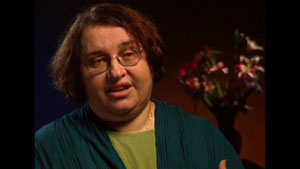Tricycle: In Europe we haven’t had the experience that you have had in America of teachers reaching considerable peaks of eminence both in the Buddhist world and in some senses, the broader culture, and then falling rather dramatically from grace, in the wake of scandal.  And I notice, as a European, that on the one hand you have a tradition of liberalism, in which more or less anything goes, and that gives you tremendous freedom, but it also gives you a tremendous sense of being empowered to do what you wish-and often at the cost of not paying great heed to some of the ethical issues. Now there is a sudden lurch back, and one finds a kind of puritanical moralism taking over. Some of the Buddhist organizations are trying to regulate everything, to impose and create rules and structures to control this. From a European perspective this is an American oddity, this intense preoccupation with a kind of self-punishing edge.
And I notice, as a European, that on the one hand you have a tradition of liberalism, in which more or less anything goes, and that gives you tremendous freedom, but it also gives you a tremendous sense of being empowered to do what you wish-and often at the cost of not paying great heed to some of the ethical issues. Now there is a sudden lurch back, and one finds a kind of puritanical moralism taking over. Some of the Buddhist organizations are trying to regulate everything, to impose and create rules and structures to control this. From a European perspective this is an American oddity, this intense preoccupation with a kind of self-punishing edge.
Salzberg: Maybe the “self-punishing edge” is the flavor of what’s informing American Buddhism. There’s a quality of self-hatred in the American psyche that perhaps does not exist in Europe. A couple of years ago at a conference in Dharamsala, I asked the Dalai Lama of a bhikku’s life-such as accountability, having nothing hidden. If it is a community, there’s the need to express one’s faults to the community. That is the basis of forgiveness. There are situations in this country, such as the predominance of lay teachers, that have not existed in the past. In our community the teachers have tried to create a code of ethical guidelines and a system of accountability for breaking a precept. It’s very difficult without that reference. In many cases, the problem has not only been the actions of teachers but the aura of silence, the fact that there’s no recourse, nowhere to go. It is very important to be open. The power relationship is so unequal in many communities that there is no way to ask questions.
Tricycle: In these communities the modes of power and authority have been more or less taken intact from Japanese or Tibetan culture, where the religious institutions are no longer governed according to the etiquette devised for the bhikku sangha. There are still fully ordained monks in the Tibetan traditions but to be frank, that is not where the power lies, it lies within the tulka system, where spiritual authority is conferred at birth, and with the sectarian hierarchies based upon that system. Likewise in Japan where the bhikku sangha has ceased to exist and again you have, more or less, a secular priesthood. It’s easy to blame the Asian models as being inappropriate to the West, but when you look deeper you see that those models are perhaps inappropriate because they reflect a model of society in which an elite is allowed a degree of privilege, a degree of freedom from accountability that the majority is not.
Salzberg: I feel differently about it for different domains. One cannot teach the dharma by committee. We all teach to the best of our understanding-which is continually evolving and changing. Certainly we do not want to teach out of the desire to be liked and therefore say what is most appealing. There’s a quality of awe I feel toward my own teachers-where I really am in some way experiencing the merging of minds. There is that wisdom potential that is fulfilled and brought to life by the power of the teachers. But that is a different level from that of ethical standards. During the student uprising in Burma, when the soldiers entered a temple to roust out dissidents, they would take off their shoes yet hold onto their guns. They were showing respect to the Buddha, while overlooking the dharma. It’s essential to be accountable for our actions and not overlook the dharma in any domain.
Tricycle: How does your system of accountability work?
Salzberg: We established groups and selected people that students could talk to about things they felt uneasy about. It’s not that any given action could be deemed right or wrong so easily, but there must be some system in place where people can question
Tricycle: Has this been tested?
Salzberg: People who serve on these committees may hear that a retreatant felt that the teacher was behaving inappropriately in some way, and then a member of the committee would call that teacher talk about it, try to clarify the situation.
Tricycle: Do these committees have the authority or the power to actually disqualify a teacher from teaching if they feel that his or her behavior was unacceptable?
Salzberg: They would refer back to each board of directors, IMS on the East Coast and the Spirit Rock Center in California.
Tricycle: So they work as a kind of ethical sounding board for the board of directors by being an advisory rather than an executive committee. Have you actually faced a crisis where the system was tested to the utmost?
Salzberg: Not since it has been in place. (Laughs)
Tricycle: When teachers are aware of that, does it affect what they do?
Salzberg: Teachers aren’t like little children who need to know that they will be disciplined if they misbehave. Many of the things that have happened are so complex, and there’s confusion about role relationships. Sometimes people are just tying to breakout of the teacher role and be human beings. And there’s not enough help dealing with transference and projection. Some people have very different views about the nature of a teacher/student relationship. What is important is that people not be isolated in either function-as a student or as a teacher. You know that we as a group of vipassana teachers have usually had this kind of peculiar quality of teaching together, two or three of us or more. We have a strong sangha of teachers here among us and there’s a certain level of accountability in that. It’s not one person sitting on top of a hierarchical complex with everybody else just waiting to submit.
Tricycle: Often people feel betrayed by a teacher because they had previously regarded the teacher as “enlightened.” How do we actually understand what it means for a teacher to be enlightened? Because of certain spiritual experiences, are they thereby no longer capable, of ethical infringement? Or is what they do somehow a manifestation of their Buddha-nature?
Salzberg: Whatever anybody does is a manifestation of their Buddha-nature but still we are capable of ethical infringement.
Tricycle: But the teacher holds the authority. In the Tibetan Vajrayana tradition it’s quite clearly stated that devotion to a teacher or guru requires training oneself to perceive whatever that teacher does as the enactment of enlightenment. How can this training ever be restyled for a system of accountability?
Salzberg: The Dalai Lama said at one point that one should really scrutinize a teacher very carefully, for at least five years, before trusting him or her.
Tricycle: That’s a worthy starting set of guidelines. But in practice it rarely if ever; happens today in America. Many lamas fly in from Nepal or Bhutan, give initiations to hundreds of people who have met them briefly or never before, and they become disciples of these lamas who fly out two days later. This is a travesty of what the tradition itself maintains. to be the appropriate behavior informing such relationships
Salzberg: Let’s come back to that issue of self-hatred or self-respect. Our experience suggests that however enlightened someone may be, there is no way of judging that from the outside. But it also suggests that however enlightened someone is doesn’t give them freedom from cultural conditioning, or a perfect political analysis of a situation. I mean, we’ve all had teachers who have given us gifts for which we could never express enough gratitude. At the same time, I don’t necessarily agree with their views on arranged marriages in India or the social situation in Burma. You could say we have different views instead of saying one is right and one is wrong. Then there are teachers who embody profound qualities. such as fearlessness, or desirelessness, who may not have wisdom in other areas of life. Maybe it’s easier in the Therevada tradition where the teacher is known as a spiritual friend; there is a hierarchy in this tradition but it does not promote the vision of the consummate master who has accomplished all attainments.
Tricycle: Does that suggest that such a model of accountability cannot coexist with an Asian model of autocracy in which a teacher; a roshi, or a lama has final judgment?
Salzberg: It has to. The function of the teacher is to return their students to their own Buddha-nature, or to their highest potential. It’s not to have them revere you as a teacher, it’s to return them to what is already fundamentally theirs. I think there has to be a system of accountability and a clear set of ethical guidelines and that they can coexist with traditional systems.
















































